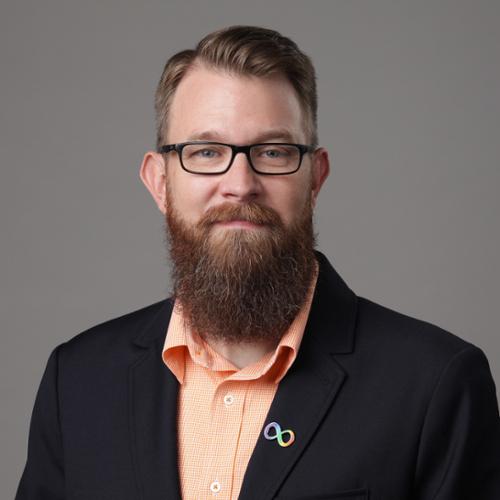J. Alex GrizzellAssistant Teaching Professor, Director of Undergraduate Studies
Originally from rural North Georgia and the first of his family to go to college, Dr. Alex Grizzell majored in psychology but shifted his focus to neuroscience just prior to graduating when his epileptic father was approved for a disability-funded amygdalohippocampectomy at Emory University Hospital in 2007. Inspired and fascinated by what he’d learned when interacting with Emory students and physicians leading up to the surgery, “Dr. A" then began a research career broadly aimed at better understanding how the prefrontal cortex and limbic system structures respond to adversity when driving motivation and behavior.
Since then, Dr. Grizzell’s academic path has taken him through four R1 universities, a medical school, and a Veterans Affairs hospital to grant him opportunities to explore an array of systems neuroscience topics, especially within animal models of hyperexcitable states such as stress, fear, and anxiety and across contexts such as social interactions, decision-making, learning, and memory. Using behavioral neuroscience techniques rooted in ethology, pharmacology, transgenetics, neural circuitry, electrophysiology, and anatomy, Dr. A has gone on to publish in topics ranging from social behaviors (e.g. conflict/dominance, maternal care, play), neurodegeneration (e.g. Alzheimer’s, Parkinson’s, innate-immune activity), and the costs/benefits of alcohol or nicotine consumption, among others. Dr. A's research also includes effective pedagogical practices for undergraduate students with and without neurodivergent conditions as well as in public-facing outreach and science communication training programs.
Dr. A joined the NBB program in Fall 2022 and welcomes the opportunity to chat with students about growing from the challenges in life in order to obtain their goals, whatever they may be. He also welcomes open conversations with students about navigating college and graduate school and facing challenges similar to his own, such as being: first-gen; non-traditional; parent-student; neurodivergent; in recovery; low socioeconomic status; and with histories of personal and generational trauma, loss, and disability.
EDUCATION
B.A., Psychology (Sociology Minor), Harding University, 2008
M.A., Neuroscience (Statistics Minor), Baylor University, 2011
Ph.D., Neuroscience and Behavior, University of Tennessee, 2019
Post Doctoral Fellowship, Center for Neuroscience, University of Colorado, Boulder, 2022
RESEARCH
As above, Dr. A works collaboratively with various research labs to continue research on stress resilience, including the differential impacts of mild stress on social behavior (e.g. dominance, aggression) and prefrontal cortical dependent behavior including fear and cognitive flexibility. You can find more HERE.
Dr. A’s also studies effective practices for teaching and learning neuroscience in the classroom, laboratory, and general public, especially when considering students, colleagues, and others with neurodivergent statuses. With a particular focus on equitable and inclusive teaching practices, he endeavors to empirically evaluate the effectiveness of open education practices that reciprocally benefit the broader society while also training young scientists and clinicians to become responsible and effective communicators of their crafts.
SERVICE
Dr. A serves NBB as the Director for Undergraduate Studies and as co-director for the NBB Paris (Summer) Study Abroad Program (leading odd years only). He also serves on Emory College Faculty Senate's Study Abroad and Anti-Racism and Social Justice Committees.
Dr. A also served as a Center for Faculty Development and Excellence's (CFDE) Diversity, Equity, and Inclusion (DEI), Teaching Fellow (2023-24), through which he developed and continues to share materials and workshops that inform what intersectional neurodivergence looks like in the modern university setting and promote inclusivity and accessibility for neurodiverse student populations.
Dr. A also serves as the faculty liaison and advisor for Emory Nu Rho Psi, Emory's chapter of the National Honors Society in Neuroscience. He also mentors Emory Neuroscience Student Association (ENSA) as well as the Atlanta/Emory Chapters of ACEing Autism, Grey Matters Emory (GME), NAMI, and Synapse.
TEACHING
- NBB 302 - Behavioral Neuroscience [Spring - even years only]
- NBB 370 - Neurodiversity [every Fall]
- NBB 370W - (Neuro)Science Writing: Responsible Communication in Neuroscience [every Spring]
- NBB 401W - Perspectives in Neuroscience and Behavior [every Fall]
- NBB 402W - Global Perspectives in Neuroscience and Behavior [Paris; Summer - odd years only]
- NBB 471 - Neuro of Oppression, Expression, and Progression [occassionally]
